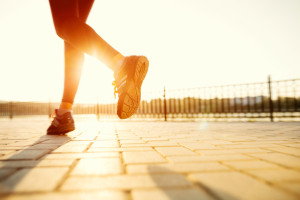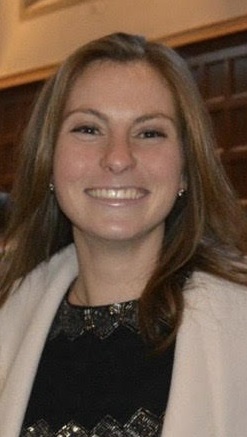- Calls to this hotline are currently being directed to Within Health, Fay or Eating Disorder Solutions
- Representatives are standing by 24/7 to help answer your questions
- All calls are confidential and HIPAA compliant
- There is no obligation or cost to call
- Eating Disorder Hope does not receive any commissions or fees dependent upon which provider you select
- Additional treatment providers are located on our directory or samhsa.gov
Exercise and Eating Disorder Recovery

For as long as I can remember, I have been a runner. Even in my heaviest stage, junior year of high school, I still ran. While my daily jogs were not far and they were not fast, they mellowed me. While I enjoyed running, I wouldn’t go as far as to say I loved running, or any form of exercise for that matter.
Throughout my most difficult times, struggling with food and weight, I always considered myself a runner. While at my heaviest, I never stopped being active. It was never difficult for me to get out and exercise. However, looking back, I realize that I was active because I thought I had to be. I was simply going through the motions.
I heard of things called “runners high” and “endorphins” but had yet to experience those feelings. When I was bulimic, I couldn’t run more than 2 miles without having to stop. When I was at the height of my eating disorder, I stopped running altogether, as I barely had enough energy some days to make it down a flight of stairs much less exercise.
When starting recovery, my psychiatrist suggested I pick up some hobbies and activities. I gave it some thought and started to pick back up running. I have never been a treadmill person, there is something calming about the outdoors when going for a run. In the gym, I feel like I am there to lose weight. While outdoors, I feel like I am fueling both my physical and mental health.
I realized while in recovery, the more I ran, the happier I became. It was about my junior year of college that I found SoulCycle. Between running outside and going to Soul classes, I was a machine.
 At first, it was difficult. Recovering from an eating disorder is very difficult when you start to put on weight, even if it is muscle. I had weight in places I wasn’t used to, and at first, it was scary. I remember some days I would cry at the sight of my new body, the bones in my neck weren’t visible anymore, so in my mind I was fat.
At first, it was difficult. Recovering from an eating disorder is very difficult when you start to put on weight, even if it is muscle. I had weight in places I wasn’t used to, and at first, it was scary. I remember some days I would cry at the sight of my new body, the bones in my neck weren’t visible anymore, so in my mind I was fat.
Day by day, I started going to more SoulCycle classes and running consistently outdoors. I don’t know when exactly I came to the realization I wasn’t exercising anymore to “lose weight” or because “I had that extra slice of cake.” One day, I remember just thinking about how much I was enjoying myself while doing these activities.
While I tried countless other workout classes, gym classes, and boot camps, to find something that fulfilled me, it was really running outdoors and SoulCycle that aided in my recovery. While your body is changing like that, during that recovery process, it is so important to find something that makes you feel complete. A healthy hobby that makes you proud of what your body can do, rather than resent it.
Since my recovery process began, I have run several half marathons and surpassed 800 classes at SoulCycle, and I am amazed every day at what my body can do. I do feel it is important to note that I do not over-exercise for weight control or to look any certain way. I run and bike in fun classes to experience the joy of movement in my amazing and strong body!
About the Author:
 Hannah Roesler is a graduate from Fordham University and currently working and living in New York City. Hannah is originally from Spring Lake, NJ and often goes home on the weekends in the summer to enjoy the beach.
Hannah Roesler is a graduate from Fordham University and currently working and living in New York City. Hannah is originally from Spring Lake, NJ and often goes home on the weekends in the summer to enjoy the beach.
She struggled with laxative abuse throughout the majority of her college and several post-college years. She is currently in recovery and working as the Eating Disorder Hope Special Projects Coordinator. Her hobbies include SoulCycle and running both competitively and for leisure.
The opinions and views of our guest contributors are shared to provide a broad perspective on eating disorders. These are not necessarily the views of Eating Disorder Hope, but an effort to offer a discussion of various issues by different concerned individuals.
We at Eating Disorder Hope understand that eating disorders result from a combination of environmental and genetic factors. If you or a loved one are suffering from an eating disorder, please know that there is hope for you, and seek immediate professional help.
Published July 8, 2020, on EatingDisorderHope.com
Reviewed & Approved on July 8, 2020, by Jacquelyn Ekern MS, LPC

The EatingDisorderHope.com editorial team comprises experienced writers, editors, and medical reviewers specializing in eating disorders, treatment, and mental and behavioral health.

